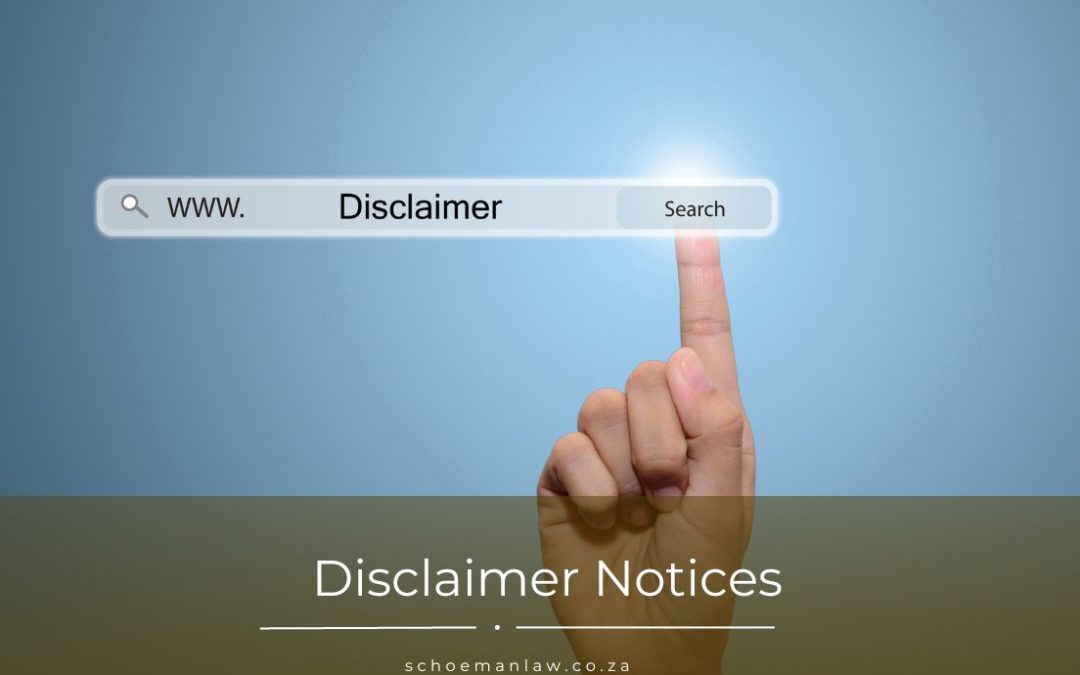Introduction
Disclaimer notices are common occurrences. We see these notices in public open spaces, shopping malls, sports stadiums, and public areas.
Disclaimer notices are displayed to protect the owner or employees of a business from potential legal liability in the event of an accident occurring on the business premises. Disclaimer notices would therefore include a clause excluding liability on the part of a person or company when a public member using the area suffers damage. A business can display a notice of this nature on the premises.
That you have a disclaimer notice does not absolve you from potential liability. Disclaimer notices will be valid when they follow a few basic rules. Firstly, for your disclaimer notice to be effective, you must place it in a position where it can be visible. It cannot be emphasised enough that the message you want to convey will have no effect unless it is correctly displayed.
A disclaimer will only be effective if the display area is in an appropriate position, allowing the reasonable person to have seen the disclaimer.
When you purchase a ticket at a ticket office, there is an expectation of finding a notice of the terms displayed at a place where one would ordinarily expect to see a notice containing the words which would govern the contract entered into by the purchaser of a ticket, namely at the ticket office. Accordingly, the court in Durban’s Water Wonderland found that it was unlikely that any reasonable person approaching the office to obtain a ticket would have failed to observe the notices on the cashier’s window.
So, you have covered yourself by placing a notice where you reasonably expect anyone entering your premises would see your notice. So, you are covered, right? Wrong.
Language in contracts is so convoluted that a quick look at it is enough to have us running off in despair. But unfortunately, we see this every day. So why would you think your disclaimer notice is okay if it uses the self-same language? If you wish to limit your contractual liability toward a customer or potential customer, you must do so in clear, concise and unequivocal language. Customers should be under no illusion that the notice they could not miss and have read sets out the limitation of your liability in the event of any mishap or misfortune befalling them.
Disclaimer notices are only effective and enforceable if it is unambiguous.
Durban’s Water Wonderland (Pty) Ltd v Botha and Another expressed it thus:
“If the language of a disclaimer or exemption clause is such that it exempts the proferens from liability in express and unambiguous terms, effect must be given to that meaning. If there is ambiguity, the language must be construed against the proferens”.
Conclusion
A company’s disclaimer notice needs to be prominently displayed. A person entering the premises would be expected to see a notice which sets out the terms and conditions of entry and usage between the owner and/or its employees and customers and that the language of the notice – in clear and unambiguous terms – exempts the business from liability in terms that expressly and in unambiguous, that the exclusion of liability will be upheld.
Contact an attorney at SchoemanLaw Inc for your legal needs!


Recent Comments